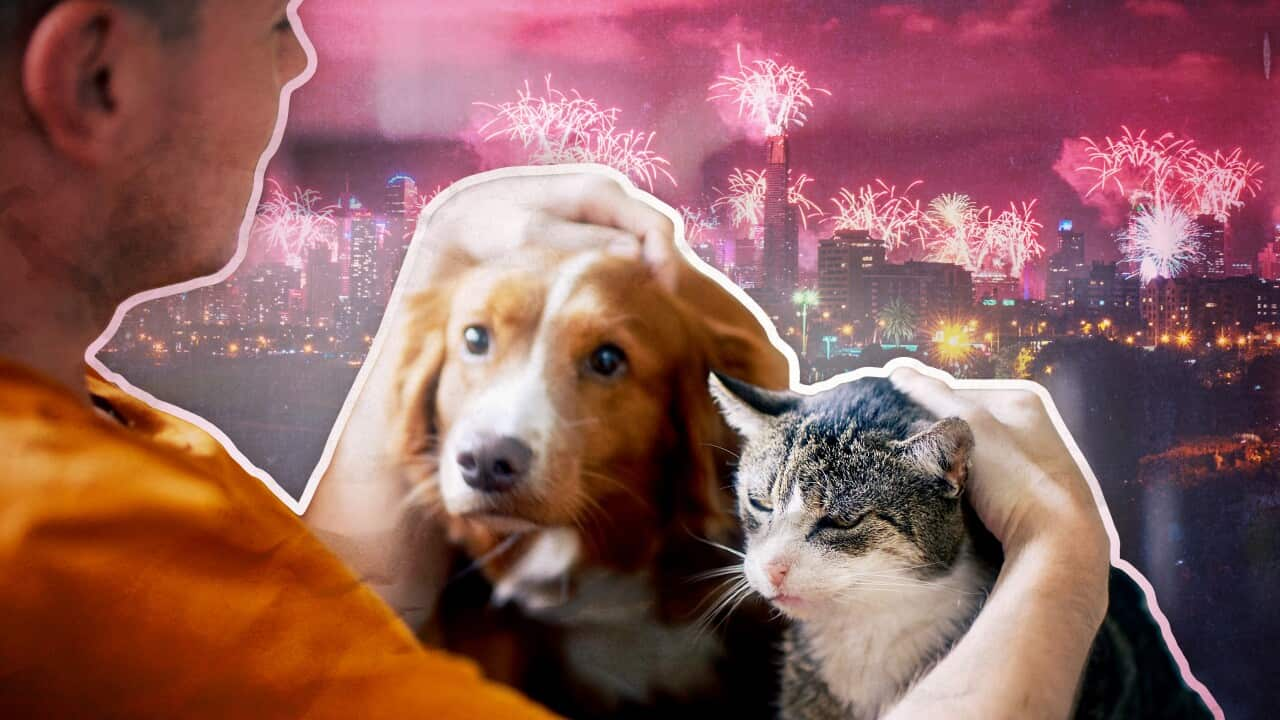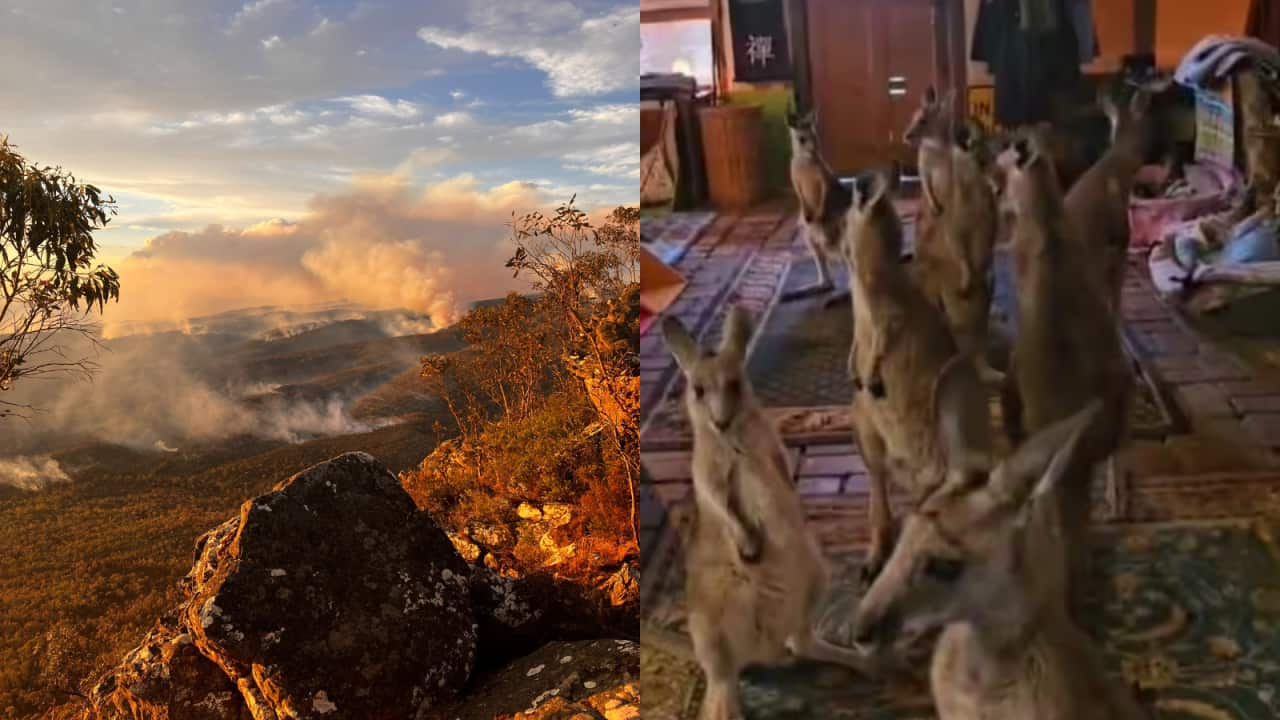As we ring in the new year, skies around Australia and the world will be lit up by glittering fireworks displays.
While it may be an enjoyable experience for most humans, for our animal friends, it's less festive and more frightening.
Animal welfare charity FOUR PAWS Australia's national director Rebecca Linigen said fireworks put pets, farmed animals, and wildlife "under immense distress".
"The sounds of fireworks are very painful for cats and dogs, whose hearing is much more sensitive," Linigen said.
The unpredictability of the noise and flashes of light can also make animals feel like they're in danger, often causing them to run away out of panic.
Here's how to help your pets stay calm during the celebrations.
Get your pets used to fireworks
Getting your pets used to the sudden and loud noises caused by fireworks from an early age can help minimise the stress they cause them.
"Animals who have had controlled exposure to noises like fireworks within a safe and familiar environment have been shown to handle the stress of New Year's Eve much better than animals who haven't," Linigen said.
You can do this by gradually socialising your pets with different stimuli, situations, and noises.
"This can be as simple as playing YouTube videos of fireworks for your pet, first at a quiet volume and slowly increasing the volume over time, while rewarding and reassuring them," she said.
"This can really help desensitise them to the real thing."

Getting your pets used to sudden and loud noises from an early age can help minimise the stress fireworks cause them. Source: Getty / Freemixer
"It is important to go at the animal's pace.
"If your pet starts to show signs of stress, that's a sign to stop or slow down the training to keep the experience positive."
Take your pet for a walk
Taking your pet for a long walk a few hours before the fireworks begin can help reduce stress and stave off anxiety they may experience later on, Linigen said.
Just make sure to do it at a relatively quiet time and place.
If you need to take them outside when the fireworks are due to begin, make sure you keep them on a leash with tags that are micro-chipped, and their registration is up-to-date.
"Too many times, we see animals flee in a panic on New Year's Eve," Linigen said.
"Where possible, put a tag on their collar with your phone number so they can be identified in the event of getting lost."
Keep your pet indoors
All pets should be kept indoors with comfort items like their bed and favourite toys during fireworks displays, Linigen said.
If it's not possible to have them in the house, put them in another quiet, enclosed space, like your garden shed.
"Create a safe space for your pets," Linigen said.

Pets should be kept indoors during fireworks displays. Source: Getty / Rawpixel
"Make sure your cats and dogs can retreat to a safe hiding place in case of stress."
Covering your guinea pig, rabbit, or bird's cage with a thick blanket can help to insulate them from any loud bangs and bright flashes — just make sure there's enough ventilation.
Distract your pet
Distracting your pets by playing games with them and giving them their favourite food and treats can help ease their anxiety, Linigen said.
Certain pheromones can also have a calming effect on cats and dogs.
No matter the precautionary measures you take, your pet may still become frightened by fireworks and need comforting
Stress symptoms to watch out for include rapid breathing, trembling, increased salivation, diarrhoea, and loss of orientation, Linigen said.
What about wildlife?
Fireworks can also impact the welfare of wildlife.
Animal welfare charity RSPCA warns the resulting loud sounds and bright lights can cause large native animals like kangaroos, wallabies, and wombats to flee and end up on roads, while wild birds may take flight and injure themselves.
Any debris or residue left behind by fireworks can also be toxic to animals if they ingest it.
If you come across an animal that needs help, contact your local wildlife carer organisation.




